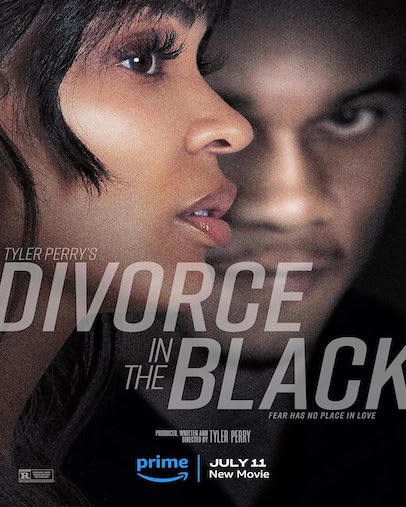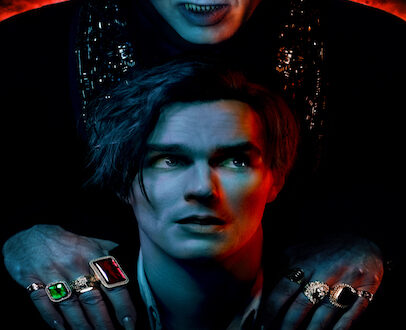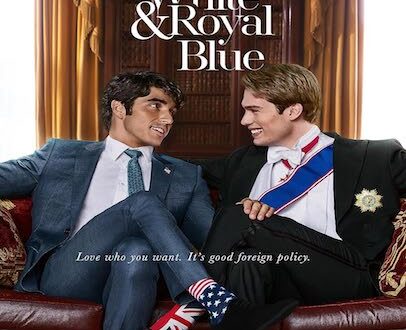Divorce In The Black: The Film’s #1 Big Problem
The opening scene of Divorce in the Black is so promising.
An angry mother can no longer tolerate the pastor insinuating that her son deserved to die and will go to hell at his very funeral.
This scene had me hooked:
Unfortunately, the rest of the film was downhill from there. The intrigue that was built was left to slowly fizzle with each passing scene.
And the main reasons why the film was so subpar rests heavily on one thing: a uni-faceted protagonist.
Let’s get into it.

Divorce in the Black: The Film’s #1 Problem

Dallas, an abusive husband, wants a divorce from his enabling wife, Ava, much to the relief of her family. However, separating their lives is not as simple as some hope for it to be.
The Lack of Protagonist Depth
The biggest detractor of this film was the shallow formation of the main characters, particularly Ava.
I couldn’t see Ava, but rather Meagan Good, a seasoned BET actress who specializes in being the romantic interest in rom-coms.
This film, however, doesn’t need cute. It doesn’t need pretty. It doesn’t need polished.
It needs raw, complex, broken, and frayed.
It needs the authentic, down-to-earth energy of Scarlett Johansson in “A Marriage Story”.
It needs the raw and unfiltered frailty of Viola Davis when the curtain closes to her long days as a hard-shelled professional in “How to Get Away with Murder.”
It needs the crazy, unbridled, guttural rage of Taraji P. Henson in “Acrimony”.
But the only energy I got from Meagan Good was the pretty girl love interest, whose decisions seemed directed by a script rather than by the conflicting emotions of the character.
And given that Good recently went through a divorce herself, it seems reasonable to expect that the emotions tied to the soul-ripping process of divorce would be easily retrievable for a role like this. An experience that she could pull from directly.
But all I got was polished, tame, and one-note despite attempts to transition to emotional places of fury and frustration.
The language of fury felt foreign to her. It felt unnatural. It felt wrong.
The intended emotion failed to make an impact because it was just unbelievable.
And the blame doesn’t fall solely on Good’s portrayal of Ava.
As the director, Tyler Perry was responsible for ensuring that the emotion he intended for the screen was properly conveyed by his actors.
As the scriptwriter as well, Perry was also responsible for adjusting the script if the delivery of the lines did not create the impact intended or felt too unnatural and unbelievable.
He seemed to let a lot of unbelievable moments slide and heartless dialogues survive.
The costume and makeup designers also didn’t help to convey that going through a divorce is exhausting.
Instead, somehow, Ava still had her wig brushed and laid and her outfits never failed to slay.
How are you going to be mourning a relationship wearing a strapless, form-fitting jean jumpsuit, with a gorgeous flowy cardigan?
How are you, as a 36-year-old woman, living under your parent’s roof again, back at square one after a divorce, and your skin is still flawless and glowing, not one tear streak or undereye bag or crooked eyelash to be found?
How am I supposed to believe that Ava is truly going through a hard time, divorcing a man that despite all his wrongdoings, she had chosen to love unconditionally?
Her emotional shifts from loyal to reckless to angry to vindictive have no perceivable flow. The shifts in emotion seem without motive making it difficult to understand Ava, relate to her, and connect to her humanity.
She just feels fake.
It’s Not Just Ava
I must applaud Cory Hartrich who plays Dallas, Ava’s husband, because his toxic, gaslighting, impulsive ways are well-portrayed on the screen.
But I must blame the script for only showing the side of him that everyone else sees, not the side that Ava sees.
There was a brief montage of some happier moments that Dallas and Ava shared but besides that, we as an audience do not have enough evidence to understand why Ava loves Dallas and has chosen to continue to love him despite her loved ones’ advice.
Dallas was another one-note character. Only portrayed as loud, threatening, and volatile.
How are we supposed to believe that divorce is a painful, complex separation when it’s only portrayed as liberation from a crazy man?
The lack of nuance to the characters, especially when discussing a topic as messy and complicated as divorce, makes it evident that Tyler Perry, the screenwriter, has never been through a divorce and maybe didn’t workshop this script with divorcees.
As much as Ava hates Dallas, she has also sacrificed a lot of her life, energy, and time for him. That alone should be mourned.
And I’m sure it takes more than a week at your parent’s house, a few outdoor jogs, and a suddenly rekindled old flame to magically lose feelings for the man you devoted about 20 years of your life to.
Supporting Characters Outshone the Main
Can we get a sequel of this movie that focuses on Rona, Ava’s best friend, instead?
She absolutely stole the show for me.
Her outrage against the way her friend was treated. Her humor. Her tact. Her unwavering support for Ava despite Ava’s self-absorption.
Rona felt like a real person. A well-rounded character. Her outrage towards Dallas felt more palpable than Ava’s outrage.
The script gives us a little insight into Rona’s struggles within her own marriage but then leaves us hanging.
I couldn’t help but find myself hoping that they would focus on Rona’s narrative instead.
She far outshone Ava as a genuine character.
Ava’s parents also displayed believable emotion as well as Dallas’ mother.
Unfortunately, the supporting characters harbored more fascinating, nuanced personalities than the main characters.
At times, I wish we were focused on the peripheral characters instead since the plot for the main characters’ never failed to stray from predictable.
In Conclusion…
Tyler Perry’s Divorce in the Black is not Perry’s best work.
The character development fell short leaving the story lacking the guttural emotion that it requires.
Although the story clinches you in its first moments, it slowly releases you to an unsatisfying end, failing to fulfill the initial promise of unhinged drama.
And although Ava strives for a clean break with a divorce in the black, this movie comes up short leaving viewers in the red.
Rating: 4.8/10
What do you think? Is the Divorce in the Black movie your cup of tea? Let me know in the comments below!
And be sure to subscribe for the latest blog updates (form in sidebar).
Peace, love, and lots of popcorn,
IMO









